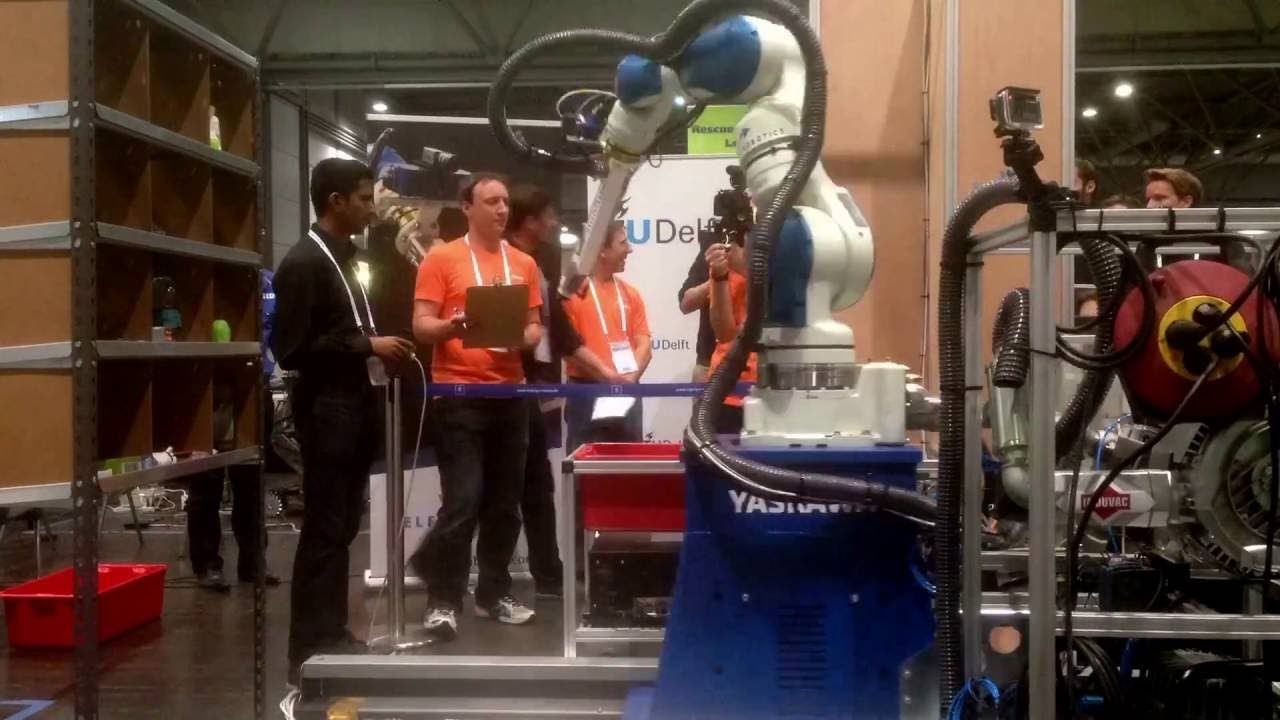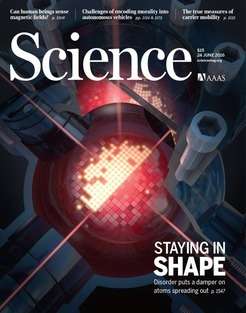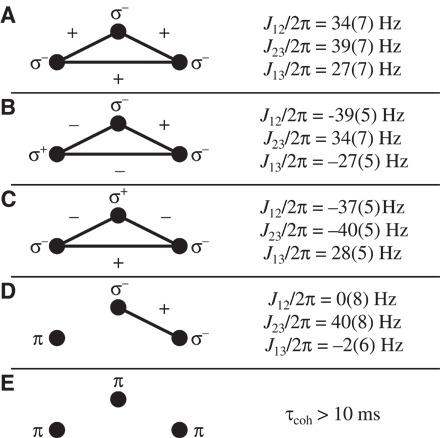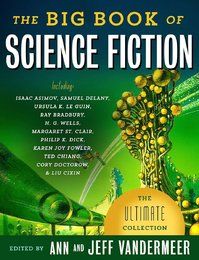Page 10773
Jul 8, 2016
Watch This Amazing 3D Bioprinter Make Artificial Bones From Scratch
Posted by Karen Hurst in categories: 3D printing, biotech/medical

If 3D printing is already impacting manufacturing today, what breakthroughs could bioprinting — or printing any mix of organic and inorganic materials — achieve tomorrow? In a recent video, a basic prototype of the Aether 1 bioprinter is shown printing two bones connected by a tendon using six materials that include synthetic bone, conductive ink, stem cells and graphene oxide.
While bioprinted organs are still a long way off — this video offers a glimpse into that future.
Continue reading “Watch This Amazing 3D Bioprinter Make Artificial Bones From Scratch” »
Jul 8, 2016
HTTPS crypto’s days are numbered. Here’s how Google wants to save it
Posted by Karen Hurst in category: quantum physics
I am really glad people are focusing because August is going to be a big month for China and their state funded groups.
Coming to a browser near you, new, post-quantum crypto.
Jul 8, 2016
Scientists obtain evidence of many-body localization in a closed quantum system
Posted by Karen Hurst in categories: computing, particle physics, quantum physics
Finding evidence of many-body localization in a closed quantum system.
During equilibration ordinary many-body systems lose all information about the initial state. Every morning we experience an example for this behaviour. Milk poured into a cup of coffee mixes perfectly and after some time it is impossible to say how exactly the two fluids were put together. The same behaviour holds for almost all quantum systems. However, recently a new phenomenon called “many-body localization” has been predicted theoretically, which allows well insulated quantum systems to preserve memory of the initial state forever. Now a team of scientists around Dr. Christian Groß and Professor Immanuel Bloch (Director at MPQ and Chair of Quantum Optics at LMU Munich), in cooperation with David Huse (Princeton University), has obtained evidence of such a behaviour in a two-dimensional quantum system of cold rubidium atoms trapped in an optical lattice.
The scientists observed that – beyond a certain degree of disorder imprinted on the particle ensemble in the beginning – the system would relax into a steady state still containing detailed microscopic information about its past. “We were able to observe the transition from a thermalized state into a many-body localized phase”, Christian Groß points out. “It is the first observation of that kind in a regime that is not accessible with state-of-the-art simulations on classical computers.” The experiment is not only of fundamental interest; the results might also lead to new ways for storing quantum information.
Continue reading “Scientists obtain evidence of many-body localization in a closed quantum system” »
Jul 8, 2016
Could the Big Bang have been more of a Big Bounce?
Posted by Karen Hurst in categories: cosmology, particle physics, quantum physics
When the bang became a bounce.
How the universe began is one of the most brain-breaking questions you could possibly ask, and the Big Bang is probably the answer most people accept. But what if the infinitely dense point from which the entire universe burst forth wasn’t the beginning of everything, but merely the middle of an ongoing cycle? That’s the theory of the Big Bounce, which suggests that the universe regularly cycles through periods of expansion and contraction, meaning the Big Bang may have been preceded by an earlier universe collapsing in on itself. A new study details how this might be possible.
The idea of the Big Bounce has been bouncing around since 1922, but explaining just how the universe transitions between expanding and contracting has always been an issue. What’s to stop a universe just contracting into a point and collapsing completely? According to researchers from Imperial College London and the Perimeter Institute for Theoretical Physics in Canada, it may be the same quantum mechanics that prevent atoms from deteriorating into nothing.
Continue reading “Could the Big Bang have been more of a Big Bounce?” »
Jul 8, 2016
Stability of new-generation semiconductor lasers
Posted by Karen Hurst in categories: biotech/medical, internet
New Semiconductor lasers — excellent news for Internet and medical technology.
Global stability analysis shows that new-generation semiconductor lasers may be dynamically more stable than conventional lasers despite having more degrees of freedom.
![]()
Continue reading “Stability of new-generation semiconductor lasers” »
Jul 8, 2016
Versatile microwave-driven trapped ion spin system for quantum information processing
Posted by Karen Hurst in categories: computing, information science, quantum physics
More steps forward for QC through the discovery of a versatile effective spin system suitable for quantum simulations and universal quantum computation.
Using trapped atomic ions, we demonstrate a tailored and versatile effective spin system suitable for quantum simulations and universal quantum computation. By simply applying microwave pulses, selected spins can be decoupled from the remaining system and, thus, can serve as a quantum memory, while simultaneously, other coupled spins perform conditional quantum dynamics. Also, microwave pulses can change the sign of spin-spin couplings, as well as their effective strength, even during the course of a quantum algorithm. Taking advantage of the simultaneous long-range coupling between three spins, a coherent quantum Fourier transform—an essential building block for many quantum algorithms—is efficiently realized. This approach, which is based on microwave-driven trapped ions and is complementary to laser-based methods, opens a new route to overcoming technical and physical challenges in the quest for a quantum simulator and a quantum computer.
Jul 8, 2016
Air Force Seeks Ideas for How Quantum Computing Can Help Warfighters
Posted by Karen Hurst in categories: government, information science, military, particle physics, quantum physics, supercomputing
Listen up all my QC buddies; the air force wants to hear from you. You have QC ideas for fighter jets they want you.
Guess I need to submit them some of mine.
The Air Force wants white papers that describe new ways quantum computing could help achieve its mission, according to an amended Broad Agency Announcement posted Friday. Eventually, the government could provide a test-bed where a contractor might install, develop and test a quantum computing system, according to the announcement.
Last year, the Air Force announced it had about $40 million available to fund research into, and the eventual maintenance and installation of a quantum system — a branch of emerging computing technology that relies on the mechanics of atomic particles to process complex equations.
Continue reading “Air Force Seeks Ideas for How Quantum Computing Can Help Warfighters” »
Jul 8, 2016
Deep Learning AI Leads Robot to Victory in Amazon’s Picking Challenge
Posted by Phillipe Bojorquez in category: robotics/AI

The machine uses and studies 3D scans of the stockroom items to help it decide how to manipulate items. The arm got a near-flawless score in the stowing half of the event. Also, Delft was over three times faster at picking objects than last year’s champion (100 per hour versus 30).
The robots were scored on their ability to correctly select individual items from shelves. Picking items mixed in with other objects would score a contender more points. The items used represented a cross section of products commonly found in Amazon’s warehouses.
Continue reading “Deep Learning AI Leads Robot to Victory in Amazon’s Picking Challenge” »
Jul 8, 2016
‘The Big Book of Science Fiction’ a portal to endless reading pleasure — By Jim Higgins | Journal Sentinel
Posted by Odette Bohr Dienel in category: media & arts
““The Big Book of Science Fiction” doesn’t codify a genre the way the Vandermeers’ previous mega-anthology “The Weird” did. Many good science-fiction anthologies exist, though I can’t think of any quite this large or this internationally inclusive.”














